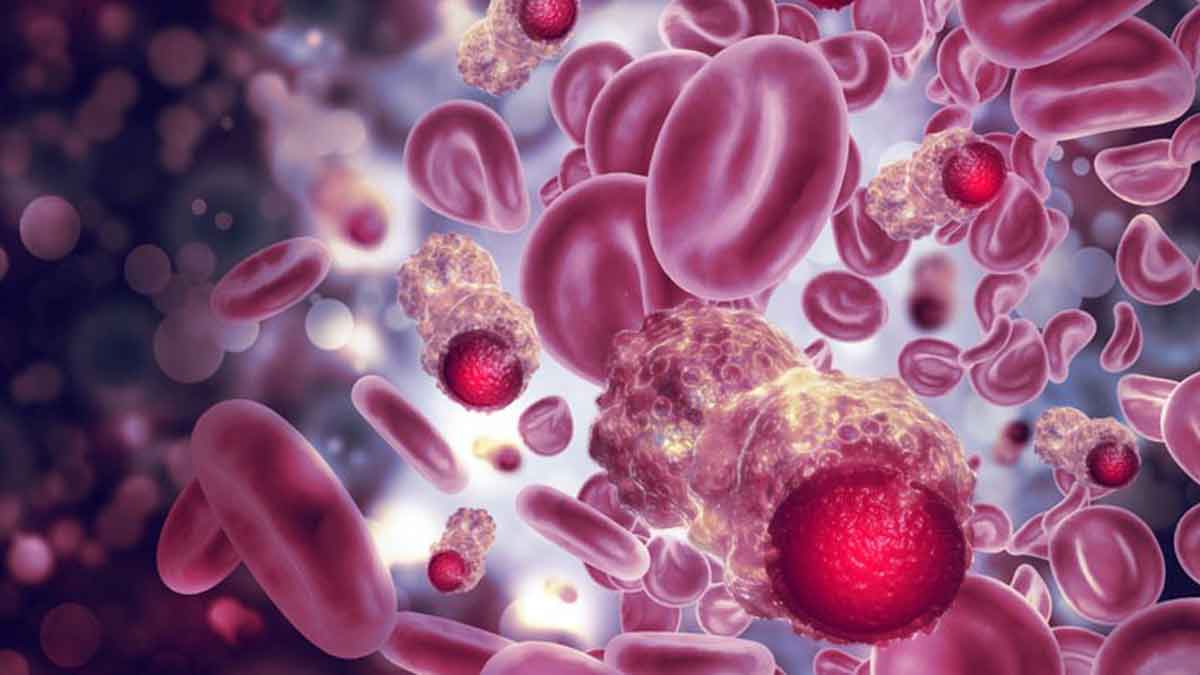Experts call for policy reforms as ‘growing’ cases of Acute Myeloid Leukemia raise concerns
 Representative Image
Representative Image
At a recently held awareness event organised by biopharmaceutical company AbbVie India, oncologists flagged the growing concern over delayed diagnoses, high treatment costs, and inadequate access to advanced therapies for patients of Acute Myeloid Leukemia (AML), a fast-progressing blood cancer. Leading oncologists called for policy reforms to tackle AML, which they referred to as "a growing, yet, under-recognised blood cancer."
Often beginning with subtle symptoms such as fatigue, fever, or unexplained bruising, AML can escalate quickly, leaving patients with a limited treatment window.
“It’s a disease that can go from bad to worse in a matter of days,” said Dr Abhay A. Bhave, haematologist at Lilavati Hospital and Research Centre. “While we have powerful chemotherapy protocols that can push AML into remission, these treatments are harsh, and complications like infections and bone marrow suppression are common.”
Targeted therapies which are drugs that act on specific genetic mutations offer better outcomes and fewer side effects, especially for older patients who may not tolerate conventional chemotherapy.
“Precision medicines are available in India, but affordability is a major roadblock,” said Dr Bhave. “Bone marrow transplants, which can be curative in some cases, are also expensive and logistically difficult.”
Dr Punit L. Jain, clinical hematologist at Apollo Hospitals, Mumbai, highlighted that nearly 60% of AML patients arrive at hospitals in advanced stages. “By the time we see them, many already have infections or internal bleeding. It becomes difficult to give full treatment,” he said. “Non-chemotherapy options have made treatment more feasible for such cases, but public awareness and early screening are crucial.”
While India has seen progress in cancer care, access to molecular diagnostics—critical for identifying the genetic mutations that drive AML—is still limited to major urban hospitals. Many patients cannot afford either the testing or the therapies that follow.
Moreover, these targeted treatments are not yet covered under most public health schemes or private insurance plans, putting them out of reach for the majority.
What is Acute Myeloid Leukemia?
Acute Myeloid Leukemia is an aggressive type of blood cancer. It generally originates in a short time span, and within a week or two patients develop multiple symptoms like bleeding, fever, and other complications related to tumour cells. The patient is brought to the hospital with these symptoms.
Diagnosis is confirmed by a bone marrow biopsy procedure. The treatment for Acute Myeloid Leukemia needs to be started quickly, and in most cases consists of chemotherapy. In some cases, patients require a bone marrow transplant.
"Although the disease is considered to be one of the most aggressive forms of cancer, it is still curable in almost 75 to 80% of cases. There is no particular patient group that is at higher risk of developing AML. We have not been able to identify what the reason is for developing this type of Leukemia, except for a few cases in which special circumstances result in the development of AML. These circumstances are generally for those patients who have received prior cancer therapy in the form of chemotherapy,” said Dr Hamza Dalal, Consultant Hematologist, Fortis Hospital Kalyan.
“The disease is divided into high and low risk, depending on genetic mutation testing done on the bone marrow samples. Patients with low-risk disease can be cured with chemotherapy alone, but in those with high-risk genetic mutations, Allogeneic Bone Marrow transplant is essential for cure," added Dalal.
Experts at the event urged for a comprehensive national strategy to tackle AML and the need to recognise AML as a public health priority and include targeted AML therapies in the National Cancer Drug Registry.
As cases rise, doctors say early diagnosis, and timely treatment are the only way forward.
“We have the knowledge, we have the tools,” said Dr Bhave. “Now we need the system to catch up—because with AML, time lost is often life lost.”
Health